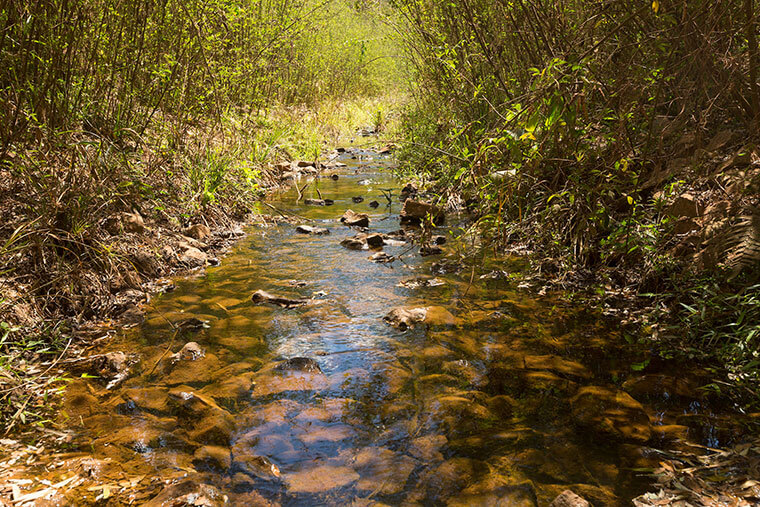The goal is to recover five thousand springs in ten years
In 2017, the partnership between the Renova Foundation, the Doce River Basin Committee and the Earth Institute (Instituto Terra) protected and began the recovery of 511 springs of tributaries of the Doce River Basin; 251 in Minas Gerais and 260 in Espirito Santo. The goal is to recover five thousand springs over a period of ten years, 500 a year. The second year of the Program began in November, with the mobilization of rural producers who were invited to learn about and participate in the springs recovery process and its efforts and intended results. The first step kicking off this second year, since the end of November, was to invite the owners to get to know the Springs Recovery actions, its efforts and intended results. Participation is voluntary, and the owner receives, in addition to technical guidelines, a subsidy. This money is for creating a fence around the areas that will be recovered.

Five thousand springs will be recovered in 10 years, 500 a year. | Photo: Gustavo Baxter / NITRO
The choice of the locations and the amount of springs included in the Program is made by the Doce River Basin Committee (CBH-Doce) and the committees of the tributaries, which this year were: CBH-Piranga, CBH-Suacui and CBH-Pontoes and Lagoas do Doce.
In order to participate in the program, producers must prove that they own or legally occupy a rural property in the priority areas defined by the CBH; have an interest in recovering the Permanent Preservation Areas (APPs) on their property; share their Rural Environmental Registry for verification, or, if they do not have one, allow its registration by the Renova Foundation technician.
The fencing of the areas should be completed by the end of February 2018. The main objectives are to protect the springs from large animals and also to test the environment’s ability to regenerate itself. When a spring is not fenced within an area intended for breeding cattle for example, there is the risk of being trampled by the animals, compacting the soil, damaging and even preventing the water from flowing out.
After that, a few other actions are required:

The protection of springs also received the support of other institutions, which are fundamental for the contact with the rural producers and feasibility of the works, such as Agricultural and Forest Protection Institute (Idaf), local governments of Coimbra, Governador Valadares, Periquito and Galileia, in Minas Gerais and local governments of Colatina, Pancas and Marilandia, in Espirito Santo, Technical and Rural Extension Company (Emater) of Minas Gerais and River Doce Basin Committees (CHB), of Suacui, Piranga, Pontoes and Lagoas do Rio Doce.

